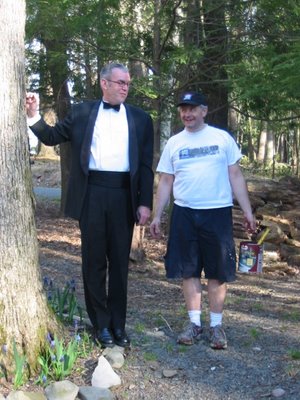
This is Alexis Gorman, 26, who 'works in marketing' in my hometown of Manhattan. Here she is on the front page of today's New York Times (August 2, 2008). The picture is sort of a re-creation, I suppose, of Ms. Gorman calling her boyfriend and telling him that they were through ... on his voice mail! On purpose!
“Text messaging someone ‘I would prefer not to see you again’ is really not my style,” she added. [Noble! And thanks for not saying 'That's just not the way I roll.'] “But at the same time, I wanted to avoid an awkward conversation.” [Not so much.]
The article tells of 'Slydial' a service that allows you to avoid having a direct conversation with the person you call, ensuring that you go right to voice mail. As such, the service allows us to communicate without communing. Like email, like Twitter, Facebook, MySpace and blogs, we can post information and read what others have posted--all without actually connecting.
So are these forms of communication artifacts of an increasingly alienated age? Or is this just technology saving us the cost of a stamp for the letters we no longer have to write?
















